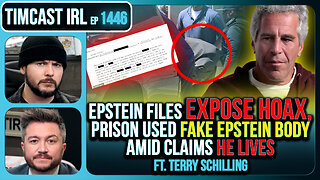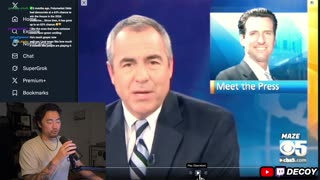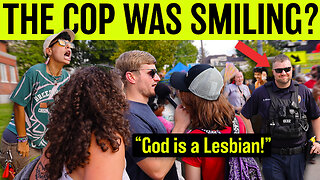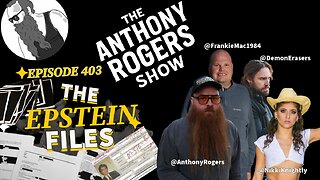Premium Only Content

Timaeus Plato
Don't forget to follow my channel for more content.
This video is perfect for putting on when going to bed, driving or while doing things around the house!
By: Plato ~ ΠΛΆΤΩΝ
Translated By: Benjamin Jowett
Full Length Audiobook Video
Timaeus Greek Τίμαιος Timaios, is one of Plato's dialogues, mostly in the form of a long monologue given by the title character Timaeus of Locri, written c. 360 BC. The work puts forward speculation on the nature of the physical world and human beings and is followed by the dialogue Critias.
Participants in the dialogue include Socrates, Timaeus, Hermocrates, and Critias. Some scholars believe that it is not the Critias of the Thirty Tyrants who is appearing in this dialogue, but his grandfather, who is also named Critias. It has been suggested that Timaeus influenced a book about Pythagoras, written by Philolaus.
The dialogue takes place the day after Socrates described his ideal state. In Plato's works such a discussion occurs in the Republic. Socrates feels that his description of the ideal state wasn't sufficient for the purposes of entertainment and that "I would be glad to hear some account of it engaging in transactions with other states".
Hermocrates wishes to oblige Socrates and mentions that Critias knows just the account to do so. Critias proceeds to tell the story of Solon's journey to Egypt where he hears the story of Atlantis, and how Athens used to be an ideal state that subsequently waged war against Atlantis. Critias believes that he is getting ahead of himself, and mentions that Timaeus will tell part of the account from the origin of the universe to man.
Critias also cites the Egyptian priest in Sais about long term factors on the fate of mankind:
"There have been, and will be again, many destructions of mankind arising out of many causes; the greatest have been brought about by the agencies of fire and water, and other lesser ones by innumerable other causes. There is a story that even you [Greeks] have preserved, that once upon a time, Phaethon, the son of Helios, having yoked the steeds in his father's chariot, because he was not able to drive them in the path of his father, burnt up all that was upon the earth, and was himself destroyed by a thunderbolt. Now this has the form of a myth, but really signifies a declination of the bodies moving in the heavens around the earth, and a great conflagration of things upon the earth, which recurs after long intervals.
Summary By: Wikipedia
-
 2:52:40
2:52:40
TimcastIRL
4 hours agoIT WAS A HOAX | Timcast IRL #1446
236K77 -
 2:31:41
2:31:41
Decoy
6 hours agoHe's cooked now
103K11 -
 1:01:19
1:01:19
Isabella Moody
8 hours agoINSIDE SCOOP: Meeting Clavicular + Updates With His ARREST In AZ
19.9K1 -
 LIVE
LIVE
DLDAfterDark
3 hours ago $0.53 earnedGUN CONTROL Is To Keep You Safe from Criminals Right?? Gun Talk
300 watching -
 9:12
9:12
Nicholas Bowling
10 hours ago $0.96 earnedPreacher Gets MOBBED in Front of POLICE at Pride Festival!
23K18 -
 1:04:12
1:04:12
Katie Miller Pod
11 hours ago $11.91 earnedJoe & Tayler Lonsdale on Tech Investments, Life in Texas, & Homeschooling | KMP Ep. 26
149K15 -
 20:07
20:07
Jasmin Laine
5 hours agoTrump Puts Carney on NOTICE—Stalling for a Majority Just Backfired BADLY
24.8K26 -
 1:28:07
1:28:07
Flyover Conservatives
8 hours agoThey’ve Been Running the World Since WWII (And You Were Never Told) - Mel K | FOC Show
29.6K4 -
 2:49:14
2:49:14
Anthony Rogers
1 day agoEpisode 403 - The Epstein Files
17.8K -
 1:40:50
1:40:50
Adam Does Movies
5 hours ago $0.59 earnedTalking Movies With Murr From Impractical Jokers - Live!
18.1K